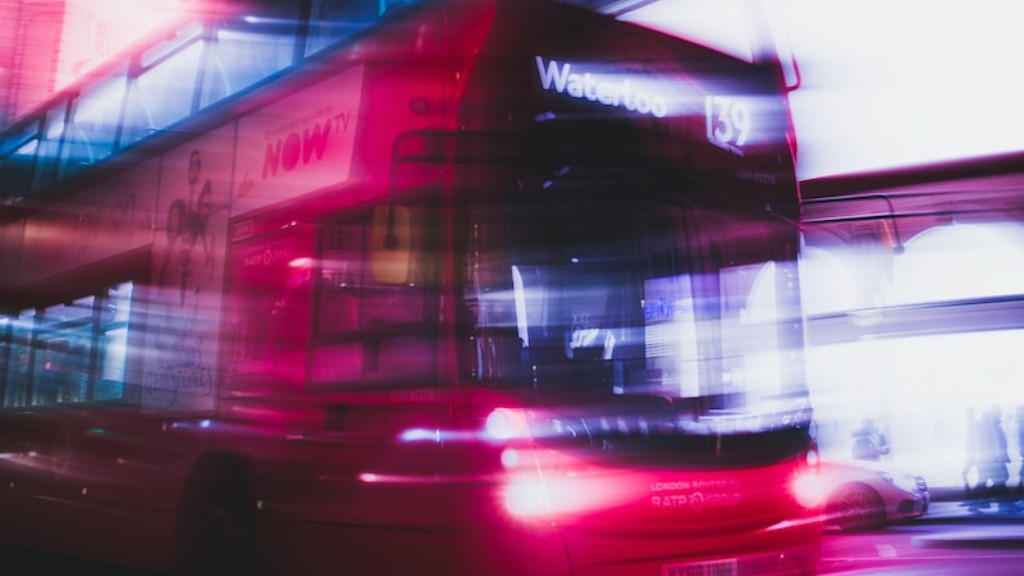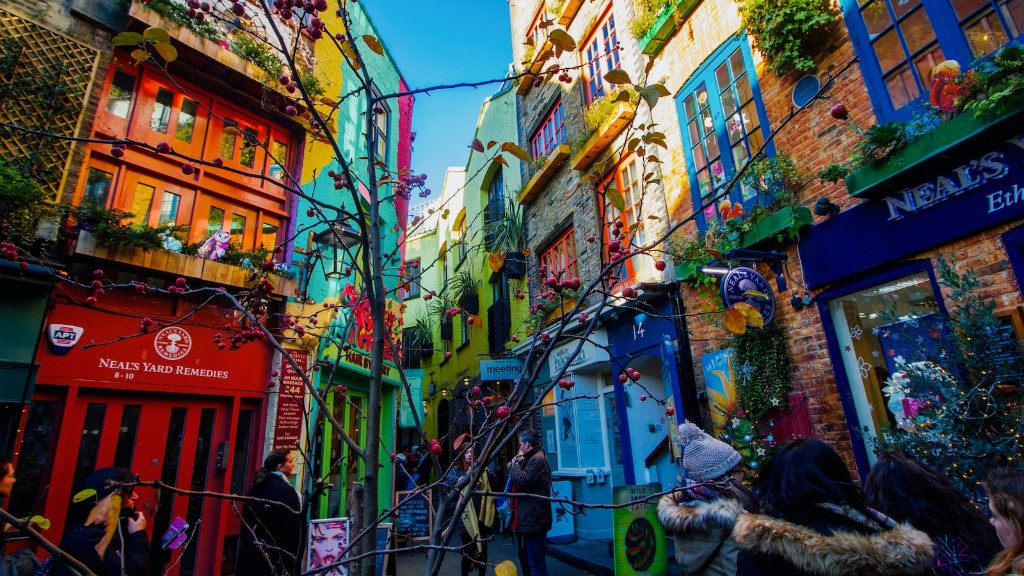In 2011, the United Kingdom saw the rise of a new wave of mayors – Muslim mayors. Born in a country where religious faiths have long been a divisive and contentious issue, the election of the first British Muslim mayors was a momentous occasion. It was a sign of progress and inclusion, the first steps towards a multicultural and diverse society. Since then, the number of Britain’s Muslim mayors has grown, raising the question: How many cities in Great Britain have Muslim mayors? The answer is that currently, there are eight British cities with Muslim mayors: Leicester, London, Manchester, Birmingham, Blackburn, Bradford, Oldham, and Tower Hamlets.
To understand the significance of this number, it is first necessary to understand the unique history of British Muslims. Great Britain has a long history of religious minorities, with many faiths represented across its cities. Most British Muslim communities trace their heritage back to the British colonial period in the 18th century, when South Asian immigrants took up residence in the nation. Today, the majority of Muslims living in the United Kingdom are of South Asian descent, making them a significant minority within the country.
The election of Muslim mayors has broad implications for British society. On a practical level, it means that local councils in these cities are more likely to take into consideration the needs of the Muslim communities. For example, many cities with Muslim mayors have implemented policies to increase access to mosques, as well as special holiday allowances and education for Muslim families. Additionally, Muslim mayors can provide a sense of representation to other Muslims living in the UK, making them feel more at home.
As is expected, the election of Muslim mayors has stirred up controversy. Many critics point to the fact that Muslims are a minority group and argue that there is a risk of favouritism towards their own religion. However, these claims are largely unfounded, as Muslim mayors are elected through a democratic process and must follow the same laws as any other British mayor. In truth, the election of Muslim mayors is a sign of the UK’s growing society incorporation of people from all different backgrounds and religions, something that is becoming increasingly important in today’s increasingly multicultural world.
Impact and Significance
The current number of Muslim mayors in the UK is a clear sign of progress for British society. For instance, a study by The Guardian found that, before 2011, there had only been 12 Muslim politicians elected to office in Britain – a stark contrast to the current figure of 8 Muslim mayors. This is a positive step forward and it highlights the growing representation of Muslim voices in British politics. As British Muslim scholar, Professor Matthew J. Goodwin, points out in his study on the rise of British Muslim mayors, “The fact that Muslim mayors are able to get elected in the face of prejudice shows that minority communities can be empowered to move up the echelons of public office.”
At the same time, the election of Muslim mayors is more than just a symbolic gesture – it also holds very real implications for how cities are governed. One excellent example is the case of Leicester, which saw the election of the first Muslim mayor in the UK, Sir Peter Soulsby, in 2011. During Sir Soulsby’s tenure as mayor, he successfully implemented several initiatives to improve the city, such as increasing access to green spaces, launching a new language course for residents, and investing in youth facilities. His reign as mayor ended in 2018, but Leicester continues to benefit from his investments.
Of course, Muslim mayors in the UK face unique challenges. As they come from a minority background, they must often contend with politically motivated smear campaigns, vilification, and cultural misunderstanding. Additionally, they must grapple with the unique difficulties associated with representing both majority and minority constituencies. Despite these challenges, Muslim mayors in the UK have proven that it is possible to combine faith and politics, and to bridge the gap between cultures in a society divided by religious difference.
Progress and Change
The election of Muslim mayors in the UK is an incredibly positive development and a testament to the progress of British society. It is a sign that the country is ready to embrace diversity and inclusion and to accept those who are different into mainstream politics. The concept of pluralism, which is at the heart of the idea of democracy, has been proven to be a viable model for the UK, despite its traditional adherence to a more hierarchical system. As the number of British Muslim mayors continues to rise, it is a sign that society is changing and that more is possible.
However, it is also important to recognise that representation is only the beginning of the process. We must also take steps to ensure that policies are implemented and that social change is achieved. As such, it is important for Muslim mayors to be aware of the issues facing their communities and to advocate for their interests. This will ensure that the conversations around representation and diversity continue to move forward and that progress is made in creating a society that recognises and celebrates the unique backgrounds of all its citizens.
Role of Muslim Communities
The election of Muslim mayors would not have been possible without the active involvement of Muslim communities. It is encouraging to see that many British Muslim organisations and local mosques are playing a role in the political process, engaging in discussions, organising events and providing resources to help people to engage with the political process. This is essential for creating a more open and inclusive society.
In many cases, these local organisations are doing crucial work in raising awareness of the importance of diversity and representation in political roles. For example, the specialist Muslim charity, MEND (Muslim Engagement and Development) is actively working to increase participation of British Muslims in politics, and to help remove barriers to political engagement. This is important work, and it underscores the commitment of British Muslims to making a difference.
The rise of British Muslim mayors is a positive sign, but it is clear that there is still much progress to be made. However, it is encouraging to see that Muslim communities are playing a more active role in British society, and that more and more positive role models are emerging. It is only through the continued involvement of Muslim communities that further progress will be made, and that true inclusivity can be achieved.
Challenges Facing Muslim Mayors
The election of Muslim mayors in the UK is an encouraging development, but it also comes with its own set of particular challenges. For instance, the unique issues that come with representing and engaging with both majority and minority constituencies. Additionally, Muslim mayors must confront the potential for cultural misunderstandings and vilification from sections of society who are unwilling to accept changes to the status quo. As such, Muslim mayors must work to build bridges between communities and ensure that those of different faith backgrounds are accepted and represented in local government.
These challenges mean that it is more difficult for Muslim mayors to make meaningful progress. For example, due to their minority status, it can be hard for them to access the resources and networks needed to implement substantial policy changes. Additionally, they are often subjected to unfair criticism and scrutiny from those who do not agree with their views or policies. As such, Muslim mayors must often fight through these challenges in order to make a difference.
Yet, despite the difficulties they face, Muslim mayors continue to make positive contributions to their communities and to the nation as a whole. Through their work, they are actively striving to create a more inclusive society and to ensure that all voices are represented in local government. This is a positive step forward for diversity and inclusion, and it is a sign that the UK is ready and willing to embrace change.
Future Perspectives
The election of Muslim mayors in the UK is undoubtedly a positive step forward for diversity and inclusion. It is a sign that British society is opening up and that new voices are being welcomed into the political process. However, the challenge now is to ensure that this progress is continued and that representation is improved even further. This means expanding opportunities for minority groups and actively working to ensure that those of all backgrounds are represented in local government.
At the same time, it is important to broaden the discussion around diversity and representatation beyond the mere presence of Muslim mayors in British cities. There needs to be a shift in focus, away from representation and towards policy. Only then will true social change be achieved and real progress made in creating a more equal and inclusive society.
The task facing British society is to continue to move forward and to create opportunities for those from minority backgrounds. The election of Muslim mayors has shown that progress is possible and that real change is within reach. It is now up to British society to ensure this progress is sustained and that minorities are provided with every opportunity to make their voice heard.




